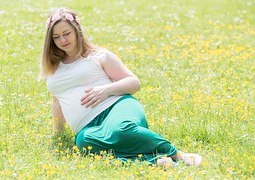Exploring The Link Between Breast Cancer And Pregnancy After 40.
In their book entitled, Managing Breast Cancer Risk, renowned authors Monica Morrow and Virgil Jordan point out that the hormonal changes that take place during pregnancy expose many women to the risk of breast cancer. Their study also showed that women above the age of 40 are more likely to develop breast cancer during their childbearing period than younger women. The changes that take place in the hormones during pregnancy trigger cellular formulations that often result in random errors that can turn cancerous.
How the age of the first pregnancy affects the cancer risk
 According to various credible surveys, women who get their first pregnancy between the ages of 20 and 30 are less likely to suffer from breast cancer than women who get their first child at around the age of 40. The chances of the breast cells turning cancerous are greater among older women than younger ones. Separate studies have also shown that childbearing at younger ages gives women long-term protective benefits against the development of tumors because of lower risk of genetic damage.
According to various credible surveys, women who get their first pregnancy between the ages of 20 and 30 are less likely to suffer from breast cancer than women who get their first child at around the age of 40. The chances of the breast cells turning cancerous are greater among older women than younger ones. Separate studies have also shown that childbearing at younger ages gives women long-term protective benefits against the development of tumors because of lower risk of genetic damage.
Each childbirth lowers the level of risk
Further facts and statistics indicate that each childbirth lowers the risk of the disease among most women. Women who get pregnant regularly at around the age of 40 have better chances of surviving the risk of the disease than those who do not get pregnant at all. Considering the fact that women at this age may not get pregnant quite often, it follows that they are more exposed to the malfunctioning of their cells. As such, age and the regularity of childbearing are crucial factors for most women.
More facts on breast cancer and pregnancy after 40
Breastfeeding helps to reduce the threat of the disease among women who get pregnant after 40. Different women around this age may be affected differently by the disease because of the crucial factor of breastfeeding. Research studies on the relationship between breast cancer and pregnancy after 40 show that breastfeeding helps to balance and stabilize a woman’s hormones in ways that protect her against the threat of tumors.
The effect of treatment on a woman’s fertility
Many studies that explore the link between breast cancer and pregnancy after 40 show that various cancer therapies can compromise the patient’s fertility. Treatments such as tamoxifen and chemotherapy can lead to the development of early menopause among women. Overall, the various studies show that women above the age of 40 are more likely to develop breast cancer during or after their pregnancy.
